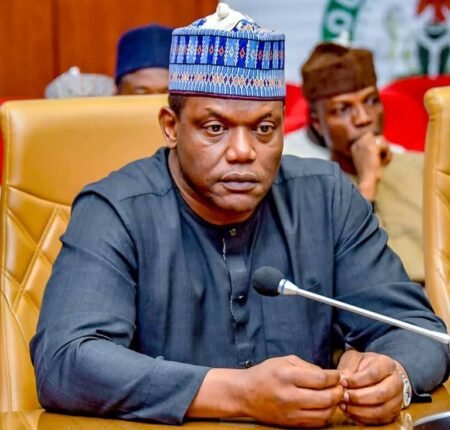The Oyo State Government has subsidised transport fares for over 5.88 million passengers from January to July 2025, under the Sustainable Action for Economic Recovery (SAfER) initiative, according to Dr. Ibrahim Dikko, Chairman and Sole Administrator of Pacesetter Transport Services.
Dikko, speaking during a media briefing at the Governor’s Office in Ibadan, explained that the SAfER Transport scheme was introduced by Governor Seyi Makinde to cushion the effects of economic hardship on residents, including students, pensioners, the elderly, and people living with disabilities. The beneficiaries enjoy subsidised travel on intra-city and inter-city routes using state-owned Pacesetter buses.
He revealed that the state has spent N2.151 billion on transportation subsidies since the launch of SAfER on August 5, 2023.
“Since August 5th, 2023, when Governor ‘Seyi Makinde announced SAfER, till date, the state government has spent N2,151,000,000 to subsidise transportation for the people,” Dikko said.
Between August and December 2023, N541 million was expended, enabling 26,000 to 30,000 daily commuters to benefit from a 50% fare reduction. In 2024, the government invested N924 million, and nearly 10 million people were transported. For the current year, N686 million has been committed so far.
Dikko applauded Governor Makinde for reviving Pacesetter Transport Services (PTS), noting that the agency had become moribund before the governor assumed office in 2019. Since Dikko’s appointment in July 2023, PTS has seen notable reforms, including fleet expansion, route diversification, and staff restructuring.
He detailed some achievements:
- 55 buses now service 39 intra-city routes
- 10 buses operate on five inter-city routes
- 30 buses revived and deployed within Ibadan
- 16 buses added for intercity routes under SAfER
PTS also introduced a digital card payment system in September 2023.
“We went digital on September 24, 2023, by introducing the card payment system,” Dikko noted.
This led to a revenue surge from N200,000 to over N1.5 million per day, with 262,000 registered card subscribers to date.
Other reforms include the installation of CCTV cameras, speed monitors, and trackers on buses to ensure safety and accountability. The company has also cleared a N150 million tax liability, pays salaries promptly, and has implemented minimum wage and staff welfare incentives like overtime and meeting allowances.
Dikko added that PTS has diversified income streams, with new interstate routes to Lagos and Abuja, and the introduction of logistics and branding services.
“There are other avenues whereby we have expanded to make money… we have Lagos and Abuja routes to just augment… You can send your goods and services to Ibadan, Lagos or Abuja… You can brand our buses,” he said.
He confirmed that 30 CNG buses were received from the Federal Government and deployed to inter-state routes. Services from Ibadan to Abuja are operational, with upcoming launches for Lagos to Abuja, Ibadan to Kwara, and other South-Western states.
Plans are also underway to establish a CNG conversion centre and taxi services to improve transportation around Ibadan International Airport and the train station.
Addressing past controversies surrounding the company, Dikko described it as resistance from entrenched interests affected by the reforms.
“When we came in, PTS was nothing to write home about… there was a tax liability of N150 million and they actually froze all the accounts of PTS… So, they sent those petitions to the House of Assembly saying that I was actually siphoning money,” he stated.
He disclosed that 38,539 passengers have used the interstate services in the past six months, generating N160.2 million, with all payments made electronically.
“All money made in PTS is electronically made. And, you cannot remove anything,” he declared.
He was accompanied at the briefing by Aremu Taofeek, Director of Finance and Account, and Mukhtar Azeez, Director of Business Planning and Financial Analysis.











